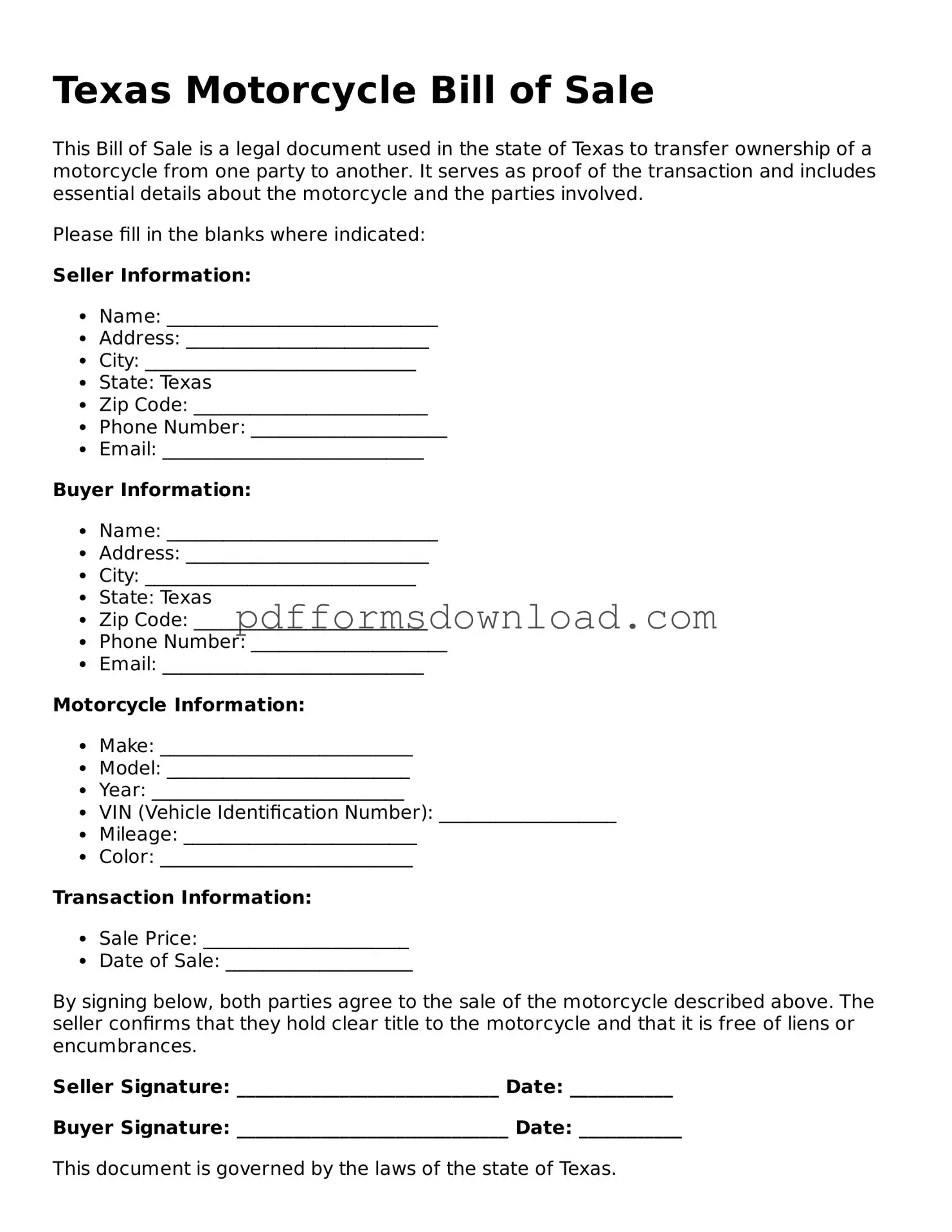What is a Texas Motorcycle Bill of Sale?
A Texas Motorcycle Bill of Sale is a legal document that records the sale of a motorcycle from one party to another. It serves as proof of the transaction and includes important details such as the buyer's and seller's names, the motorcycle's make, model, year, Vehicle Identification Number (VIN), and the sale price. This document is crucial for both parties to protect their rights and facilitate the transfer of ownership.
Is a Bill of Sale required in Texas for motorcycle transactions?
While a Bill of Sale is not legally required for every motorcycle sale in Texas, it is highly recommended. Having a Bill of Sale can help prevent disputes regarding the sale and provide a clear record of the transaction. Additionally, it may be required by the Texas Department of Motor Vehicles (DMV) when registering the motorcycle in the buyer's name.
What information should be included in a Texas Motorcycle Bill of Sale?
A comprehensive Texas Motorcycle Bill of Sale should include the following information: the names and addresses of both the buyer and seller, the date of the sale, a detailed description of the motorcycle (including make, model, year, and VIN), the sale price, and the signatures of both parties. Including any additional terms or conditions agreed upon during the sale can also be beneficial.
Do I need to have the Bill of Sale notarized?
Notarization is not required for a Texas Motorcycle Bill of Sale. However, having the document notarized can provide an extra layer of authenticity and may be beneficial if any disputes arise in the future. It is always a good practice to keep a copy of the signed Bill of Sale for your records.
Can I create my own Bill of Sale for a motorcycle in Texas?
Yes, you can create your own Bill of Sale for a motorcycle in Texas. There are no specific state forms mandated for this purpose. However, it is important to ensure that all necessary information is included to make the document valid. Various templates are available online that can serve as a guide in drafting your own Bill of Sale.
What should I do with the Bill of Sale after the transaction?
After the transaction is complete, both the buyer and seller should keep a copy of the Bill of Sale for their records. The buyer will need this document when registering the motorcycle with the Texas DMV. It can also serve as proof of ownership in case of theft or other legal issues that may arise in the future.
What if there are issues after the sale?
If issues arise after the sale, such as disputes over the motorcycle's condition or ownership, the Bill of Sale can be a critical piece of evidence. It outlines the terms agreed upon by both parties. If a problem cannot be resolved amicably, legal action may be necessary, and having a properly completed Bill of Sale can support your case.

